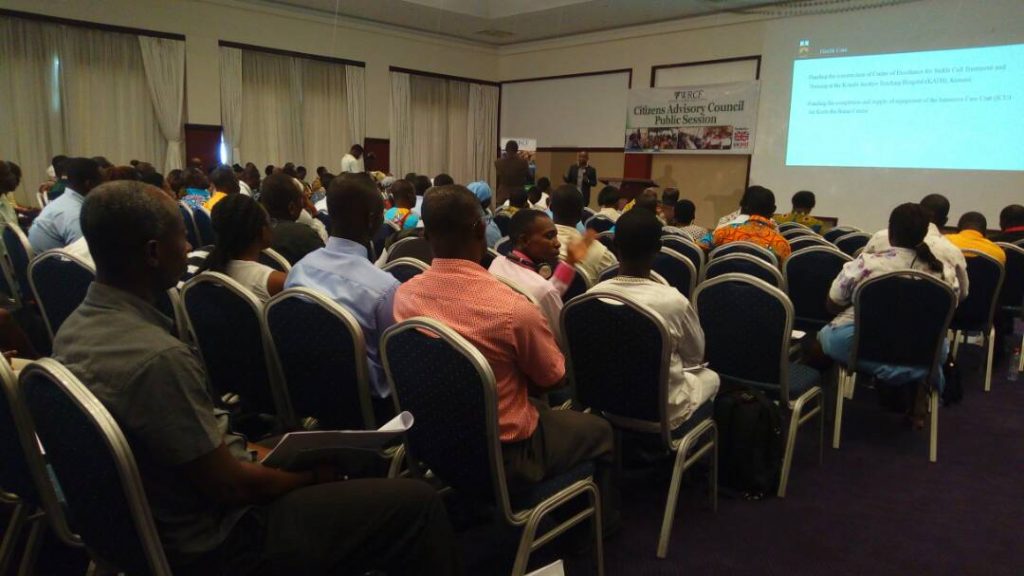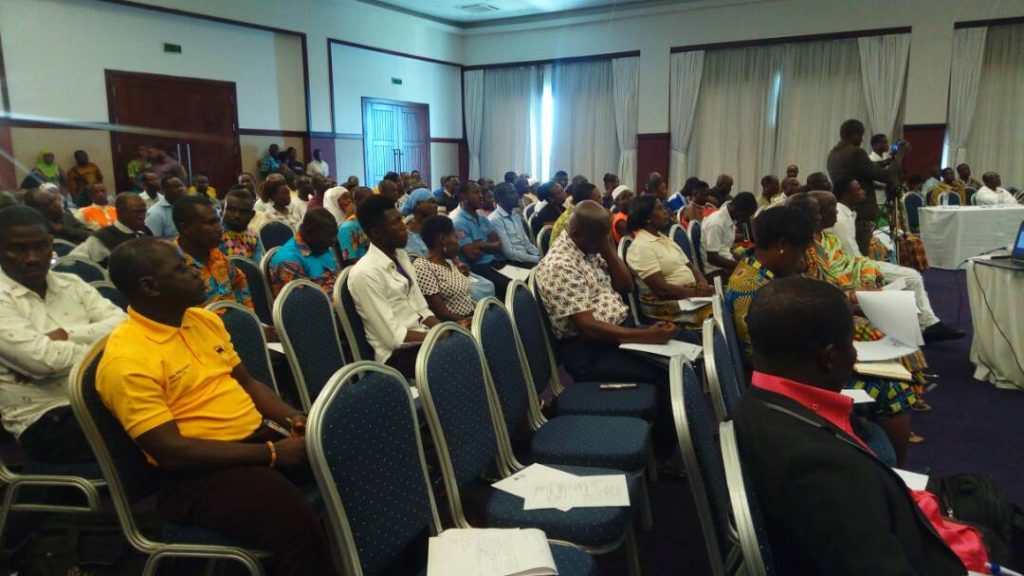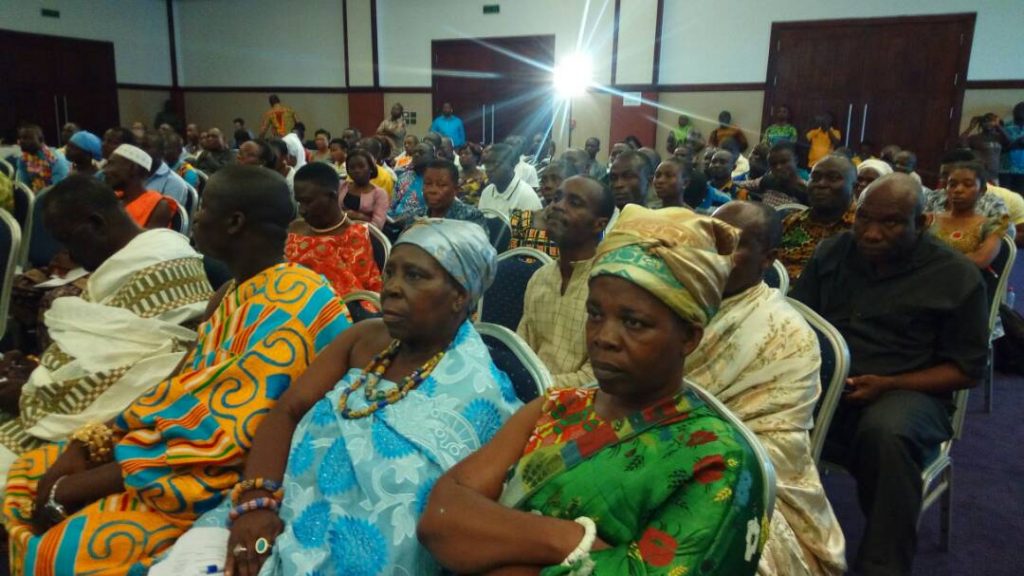The Western Region Coastal Foundation, WRCF, has held its sixth citizens advisory council public session in Takoradi. The sessions are meant to listen to issues that have been raised and prioritized by community members from the household level to the district level in the six coastal districts of the region.
At these sessions, representatives of oil and gas companies as well as government institutions and agencies, operating in the six coastal districts, are called up to respond to issues of concern around economic empowerment and livelihoods, water, sanitation, environment, education, health and decision making that affects communities in which they operate.
Whilst government agencies and institutions are called up to respond to questions that border on environmental sustainability, unemployment, water-related issues, access to healthcare and education, oil companies are also called up to respond to questions on livelihood empowerment and sustainability.

At the sixth edition, some non-governmental organizations and CSOs, such as the Africa Center for Energy Policy ACEP, Friends of the Nation FON, as well as some private sector players like the Association of Ghana Industries AGI, were called up to present issues as well as opportunities they have identified in the petroleum industry and in the six coastal districts.
“Land use and Spatial Planning Act, 2016 (Act 925), needs to be fully implemented. This will help generally to provide for spatial aspects of socio-economic development, and for related matters in the communities” Solomon Kusi Ampofo, Natural Resource governance coordinator at Friends of the Nation noted.

The Ghana National Petroleum Corporation, GNPC, also told the gathering of their resolve to establish the National Shared Value Plan which will be funded by GNPC’s upstream partners.
“We are committed to ensuring that the hydrocarbons discovery in the country will benefit every Ghanaian, and that through our own initiatives and programs, we want to arrive at a situation where we can affect the life of the people within the communities in our operational areas. That’s what the National Shared Value Plan is about” Dr. Patrick Ofori, Sustainability Manager of GNPC told Citi News.

The Paramount Chief of the Lower Dixcove Traditional Area, Nana Kwesi Agyeman IX, who is also the council chair for WRCF, reiterated the importance of such meetings, noting that dialogue will help the companies to have a social contract and acceptability within the communities.
The Vice-chair of WRCF, Wisdom Quaicoe, who is also the Executive Director for the United Civil Society for National Development UCSOND, was not enthused about the seeming difficulty that serves as impediment between persons with disabilities from accessing offices of some of the oil companies.
He suggested to representatives of the companies to work to make their offices disability friendly.
About WRCF
The Western Region Coastal Foundation is a locally owned and managed independent foundation with a legal charter as an NGO in Ghana. Its governance structure is made up of representatives from communities, local government and companies.
As the oil, gas, power (OGP) and other extractive industries increase activity in the Western Region, they are affecting the daily lives of residents of the region’s six coastal districts. This creates risks and operational challenges – increasing expectations by government, traditional authorities and others,as it also offers opportunities.
Managing these risks and capitalizing on these opportunities require knowledge, expertise and collective commitment to local economic and social development over the long-term.
Through the innovative community dialogue platform, WRCF is actively identifying and designing ways to add value to new or existing initiatives in the private sector development, to create economic growth in the region.
WRCF seeks to promote development in communities impacted by extractive industries through influencing Corporate Social Investment (CSI) decisions, coordinating and supporting the delivery of economic and social initiatives prioritized by stakeholders.
–
By: Obrempong Yaw Ampofo/citifmonline.com/Ghana

